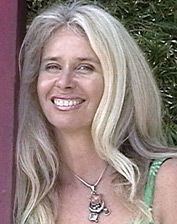There is no shortage of interesting sessions going on at SXSW Interactive in Austin, but one that was especially interesting was "Can Wikipedia Survive Popular Success and Community Decline?" – a presentation from USC Professor of Journalism Andrew Lih. The session explored factors that contribute to the declining rate of Wikipedia entry editing, although Sue Gardner, Executive Director of the Wikimedia Foundation told WebProNews a few months ago, that growth in editing had slowed, and the number of editors was just flat, and not declining.
Either way it’s ceratinly not a money issue. The Wikimedia Foundation doesn’t appear to have too many problems raising money. "Every year, the number of people donating to the Wikimedia Foundation has increased, and the total dollar amount has increased too," Gardner told us. Google alone recently donated $2 million. Not that the money goes to editors (this is where it goes).
It’s quite interesting that Wikipedia’s success has come at the price of a community decline (even if in just growth). One of the biggest reasons there has been such a drop off in new editors is that it has simply gotten harder to edit entries. That’s not just because of exclusivity reasons. It has actually become more technically difficult to edit entries over the years. There is a huge usability issue, and this is much of what Lih discussed.
Lih talked about how the editorial language has gotten more vague over the years. Wikipedia used to flat out ask people to edit articles. Then it eventually got to where "anyone CAN edit."
Another factor he mentioned is that of eventualism – the belief in the Wikipedia community that people will eventually fix articles. Someone else will get to it.
Yet another factor is that there are way more rules than there used to be. It’s not that this is necessarily a bad thing. As Lih says, there is kind of more resonsiblitlity for Wikipedia to be up to quality standards now, as it has become one of the most popular sites on the web, and is often at the top of Google search results. But with more rules, comes less ease and in some cases, less enthusiasm.
If a potential editor does want to go through with playing by the rules, they have to go through an extensive interrogation process in which Lih says they are asked twenty to thirty questions.
Perhaps the biggest reason people don’t want to edit Wikipedia articles is that the markup on the actual edit pages has become much more complicated over the years. It used to be simple, and most people could easily figure it out, and now, as Lih explained, it looks like a SQL database. He referred to a usability study from the Wikimedia Foundation, in which every user struggled to get a basic grasp of the editing interface. Users largely failed to make edits correctly without repeated attempts and efforts. Not even the most tech-savvy participants were able to do it right.
Lih presented the idea of looking at lessons from other communities. He focused specifically on DMOZ. "DMOZ chose to place editorial control in the hands of a small cabal of editors, and in doing so made the directory opaque, unresponsive and outdated – the editorial policy of DMOZ killed DMOZ," he said.
Possible scenarios that could play out, as Lih suggested, include a slow, steady quality decline, flagged revisions leading to a quality increase, the inability to update in a timely manner, or the trickling in of spam, PoV/non-neutralcontent.
There is much research being put into Wikipedia and it’s continued success. Google’s relationship with Wikipedia (whatever the extent of that may be, Lih simply calls it an interesting one and pretty much leaves it at that), appears to be helping keep Wikipedia in the forefront of search results for many, many queries. That’s now though. Things change. There are other Wiki-style information sites out there, some of which have much more user-friendly editorial processes. Is it possible that Wikipedia will go the way of DMOZ?
It has become easier for researchers to obtain more data about Wikipedia in the last few years, and researchers are exploring a variety of ways to improve the process. Perhaps Wikipedia will be able to correct some of its issues before they snowball too much.
Read our interview with Gardner here.


 I can tell you why some websites got nixed in my categories. Sites that were very low quality, perhaps still under construction, for example, didn’t get listed. Sites that were second sites for the same business didn’t get listed. Affiliate sites were deleted.
I can tell you why some websites got nixed in my categories. Sites that were very low quality, perhaps still under construction, for example, didn’t get listed. Sites that were second sites for the same business didn’t get listed. Affiliate sites were deleted.